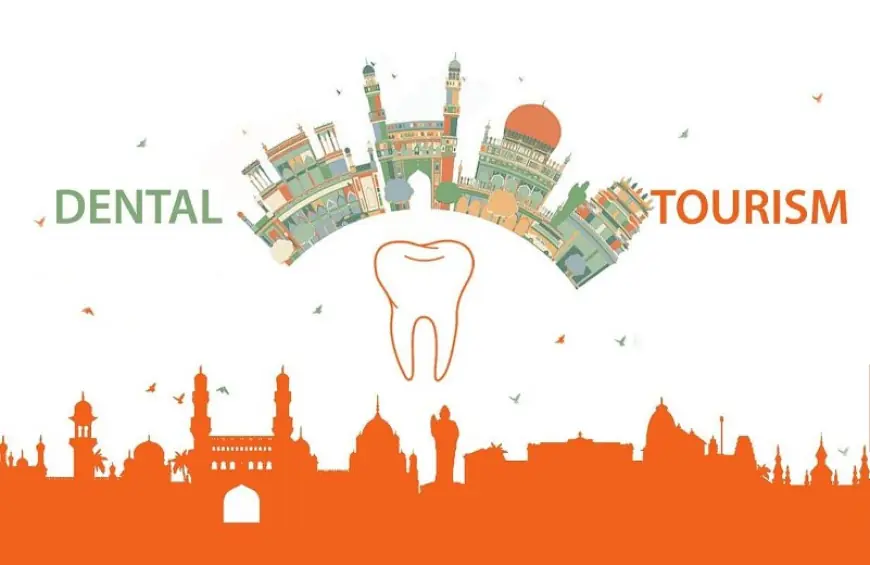Dental Tourism: Affordable Dental Care Abroad

Dental tourism is no longer just a trend; it has become a booming global industry. Patients travel across countries to receive affordable dental care without compromising on quality. The idea is simple: combine world-class dental treatment with the experience of traveling abroad. For many, it’s the perfect blend of health and leisure.
What Is Dental Tourism?
Dental tourism refers to traveling overseas for dental procedures such as implants, crowns, veneers, or even routine checkups. The practice emerged as a cost-effective solution for patients from countries where dental care is expensive. It allows them to access the same quality of treatment, or sometimes even better, at a fraction of the price.
Why Is Dental Tourism Growing?
Several reasons fuel the rise of dental tourism:
-
High Costs at Home: In countries like the U.S., U.K., and Canada, dental treatments can cost up to three times more than in countries like India, Thailand, or Mexico.
-
Improved Global Healthcare: Many countries now offer advanced technology and internationally trained dentists.
-
Travel Opportunities: Patients can enjoy cultural and travel experiences alongside their treatment.
-
Minimal Waiting Time: Unlike in some Western nations, appointments abroad are quicker and more flexible.
Popular Dental Tourism Destinations ?
-
Mexico – Popular among Americans for its proximity and affordable treatments.
-
Thailand – Known for advanced dental facilities and warm hospitality.
-
India – Offers highly skilled dentists at very competitive prices.
-
Hungary – A hub for Europeans seeking cosmetic dentistry.
-
Turkey – Famous for dental implants and cosmetic procedures at low costs.
Benefits of Dental Tourism
-
Cost Savings: Patients save between 40% to 70% on treatments.
-
Quality Care: International accreditations ensure high standards.
-
Comprehensive Packages: Some clinics include travel, stay, and treatment in one deal.
-
Cultural Experience: Patients can explore new countries while improving their dental health.
Risks and Considerations
While the benefits are appealing, dental tourism also comes with considerations:
-
Follow-up Care: Returning home may complicate aftercare.
-
Legal Protection: Patients may have limited recourse if something goes wrong abroad.
-
Communication Barriers: Language differences may cause misunderstandings.
-
Travel Stress: Combining long flights with surgery can be physically taxing.
Who Chooses Dental Tourism?
-
Retirees: Seeking affordable care without dipping into savings.
-
Young Adults: Wanting cosmetic dentistry like veneers or whitening.
-
Families: Looking for complete dental packages for multiple members.
-
Expats: Preferring dental treatment while visiting their home country.
Dental Tourism vs. Local Treatment
| Aspect | Dental Tourism Abroad | Local Treatment (Home Country) |
|---|---|---|
| Cost | 40–70% cheaper | High, especially in developed nations |
| Quality | Equal or higher in some countries | Standard but costly |
| Waiting Time | Short | Sometimes long |
| Travel Experience | Adds tourism value | Limited |
Tips for Safe Dental Tourism ✈️
-
Research Clinics: Check accreditations, reviews, and success rates.
-
Plan Ahead: Book appointments before booking flights.
-
Check Insurance: Confirm whether your plan covers overseas dental treatment.
-
Communicate Clearly: Ensure there’s no language barrier with your dentist.
-
Budget Wisely: Include treatment, travel, and accommodation in your cost plan.
Future of Dental Tourism
The future looks bright. As healthcare globalization increases, more people will consider traveling for dental work. With telemedicine and digital consultations, patients can connect with dentists before flying. This reduces risks and ensures smoother experiences.
Conclusion
Dental tourism is transforming the way people view oral healthcare. It provides affordable dental care abroad, combines treatment with cultural exploration, and helps patients save significantly on costs. While there are risks, careful planning and research can ensure a safe and rewarding experience. For many, the journey to a brighter smile truly begins with a passport.
What's Your Reaction?
 Like
0
Like
0
 Dislike
0
Dislike
0
 Love
0
Love
0
 Funny
0
Funny
0
 Angry
0
Angry
0
 Sad
0
Sad
0
 Wow
0
Wow
0
















































